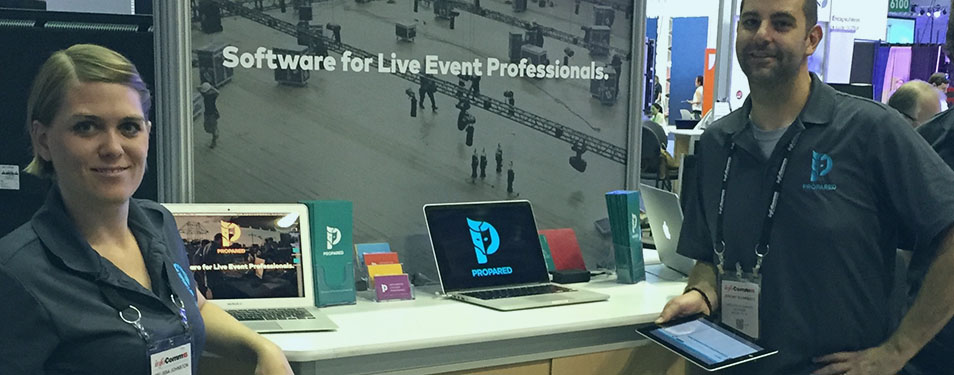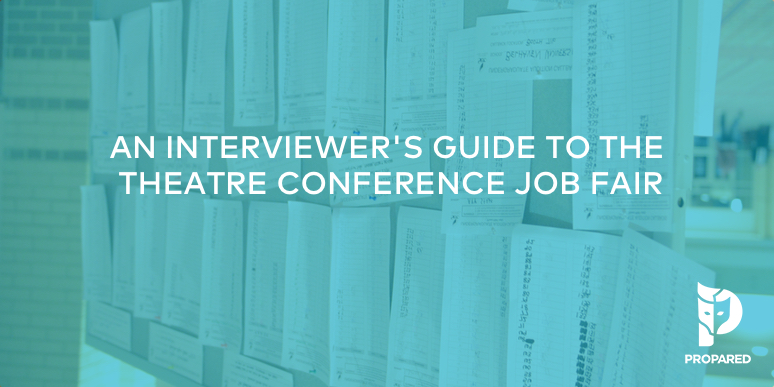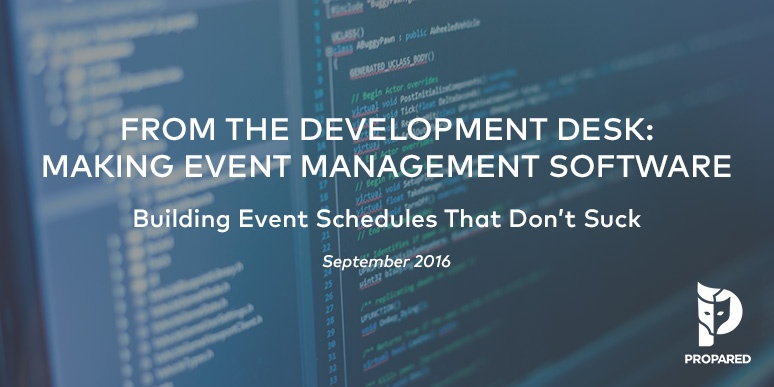
Has it really been a week since the 2015 edition of InfoComm came to an end? The Propared team is still heady from the conference and was thrilled to participate in its first ever Innovation Showcase. We saw some amazing things (Personal drones! Projection-mapping on a Tesla!) and met some terrific people (special shout outs to George Tucker, Chris Neto, and the AVNation crew for pushing so hard to get us newcomers some face time). Back home, we’re still reflecting on the amazing stories shared with us by AV and event production professionals. What are their goals and challenges, and how can we help them achieve successful project outcomes?
I know. That’s pretty broad. First things first – we need to define what we mean by “project” in the event management world. One thing is certain – event project managers need to have their day in the sun. They need their own solution.
The word “project” is defined as: “an individual or collaborative enterprise that is carefully planned and designed to achieve a particular aim.” To some degree, one could argue everything is a project. The thing is, all projects are different, particularly when you start crossing industry borders. Building a highway couldn’t be more different from building a video game, and yet we plop them both into the same bucket and call them “projects.”
Many projects are complex. Therefore we design tools that help us manage them more efficiently. There is a seemingly endless supply of “project management” solutions available on the market that try to address the needs of project managers. Given the vague ambiguity of the term “project,” it’s very difficult to design something that addresses the needs of everyone. Do you need to manage logistics and pre-planning? Labor? Attendees and registration? Social Engagement? What we wind up with are products that are so flexible that we can’t even begin to work with them until we’ve built our own frameworks and procedures on top of them.
Let’s focus on the logistics side of things. For example, the typical production schedule is generated on a spreadsheet. But before we can even begin populating the schedule with tasks and duties to be performed, we have to come up with our own columns and formatting, neither of which actually translate into the quality of our management abilities.
On the other hand, we can’t get too specific either. Everyone works a little differently and if we try to out-guess exactly what one of our colleagues needs to do his or her job, we wind up with something that is only useful for a small handful of people in very specific situations.
A balance must be struck. When we sat down to build Propared, we asked:
What makes event professionals special?
What are the specifics of event project management that set it apart from project management in other industries?
Why do we reject all the solutions out there when there are so many from which to choose?
We came up with five major takeaways that encapsulate the day-to-day challenges of event work.
1. We work faster.
Events we plan last days or weeks instead of months or years.
2. We do more projects.
Due to the shorter time-span, we are often juggling a few to dozens of shows simultaneously.
3. We work in smaller time increments.
When planning conferences, trade shows, and large corporate events, our schedules are detailed down to the minute, instead of in days and weeks.
4. Deadlines don’t change.
Once a date is set, it’s a countdown to the event. We’re rarely if ever able to say, “Oh sorry, we’re going to need to push back the show.”
5. BUT Our teams constantly do.
With all the vendors, freelancers, clients, and venues, we rarely work with all the same people from show to show. This makes establishing procedures and communication difficult.
Taking these challenges into account helped us establish a great starting point for building out an event software solution that truly represents the conditions of event work. We are addressing the unique needs of the industry from the moment each “project” begins.




